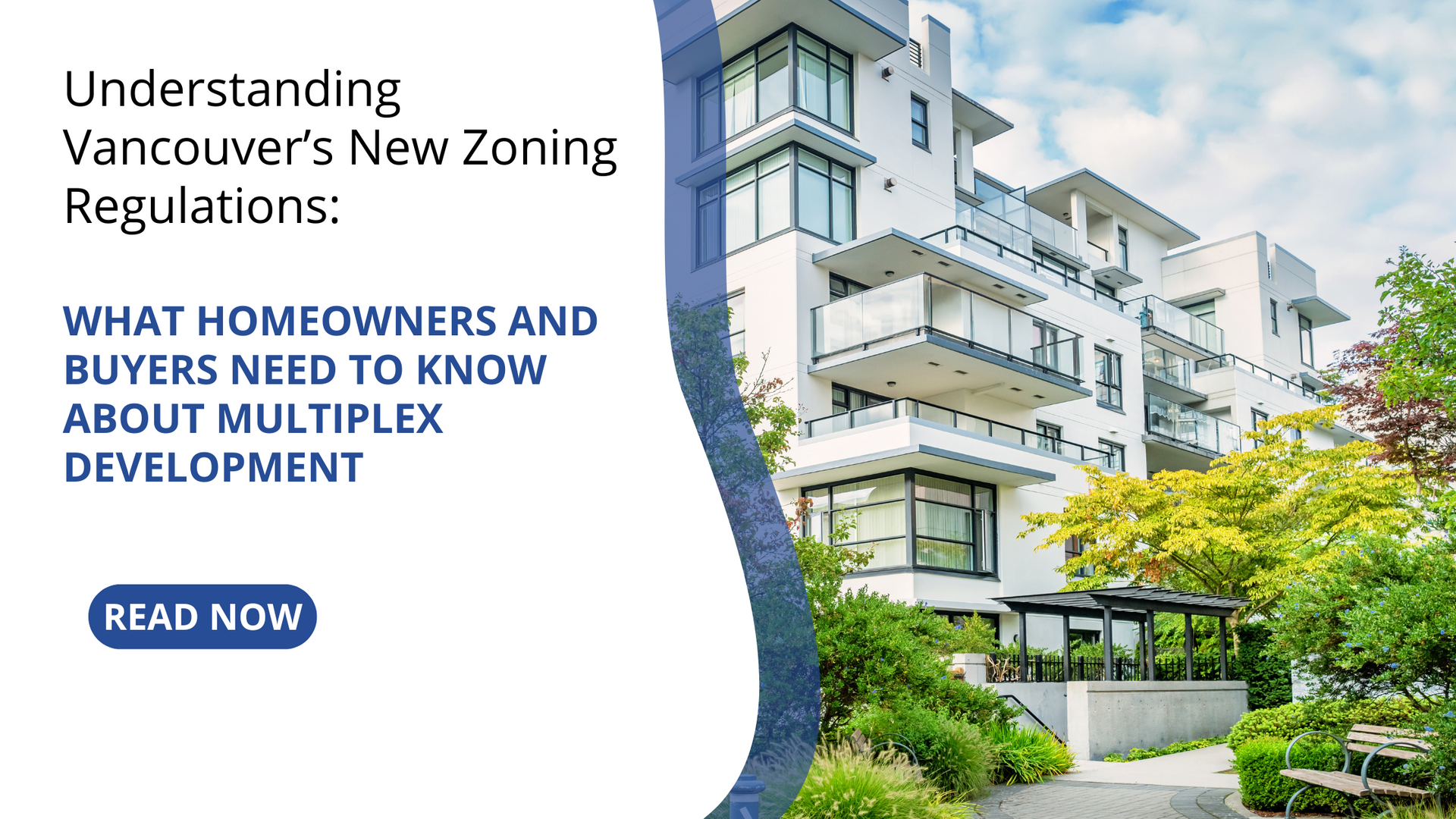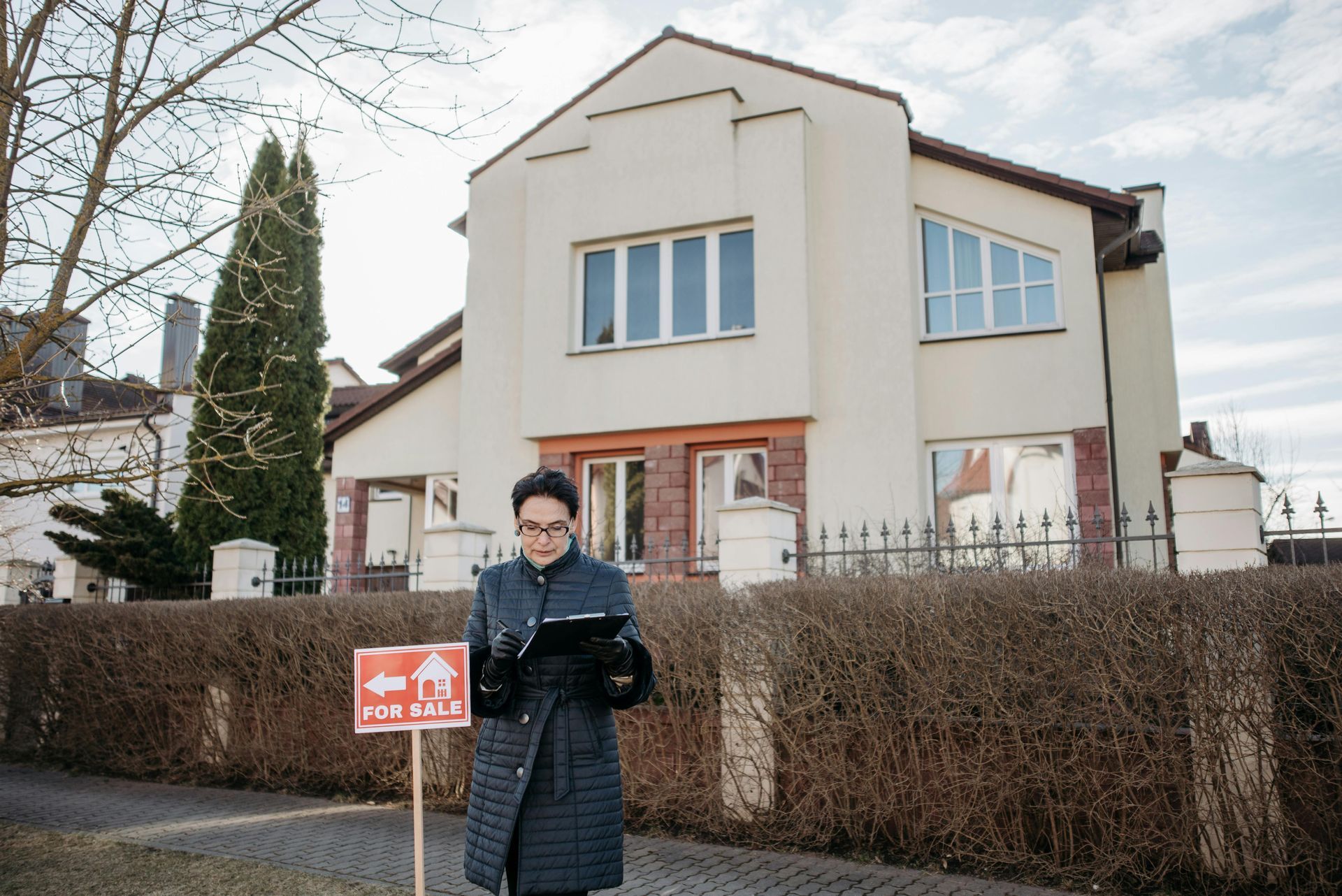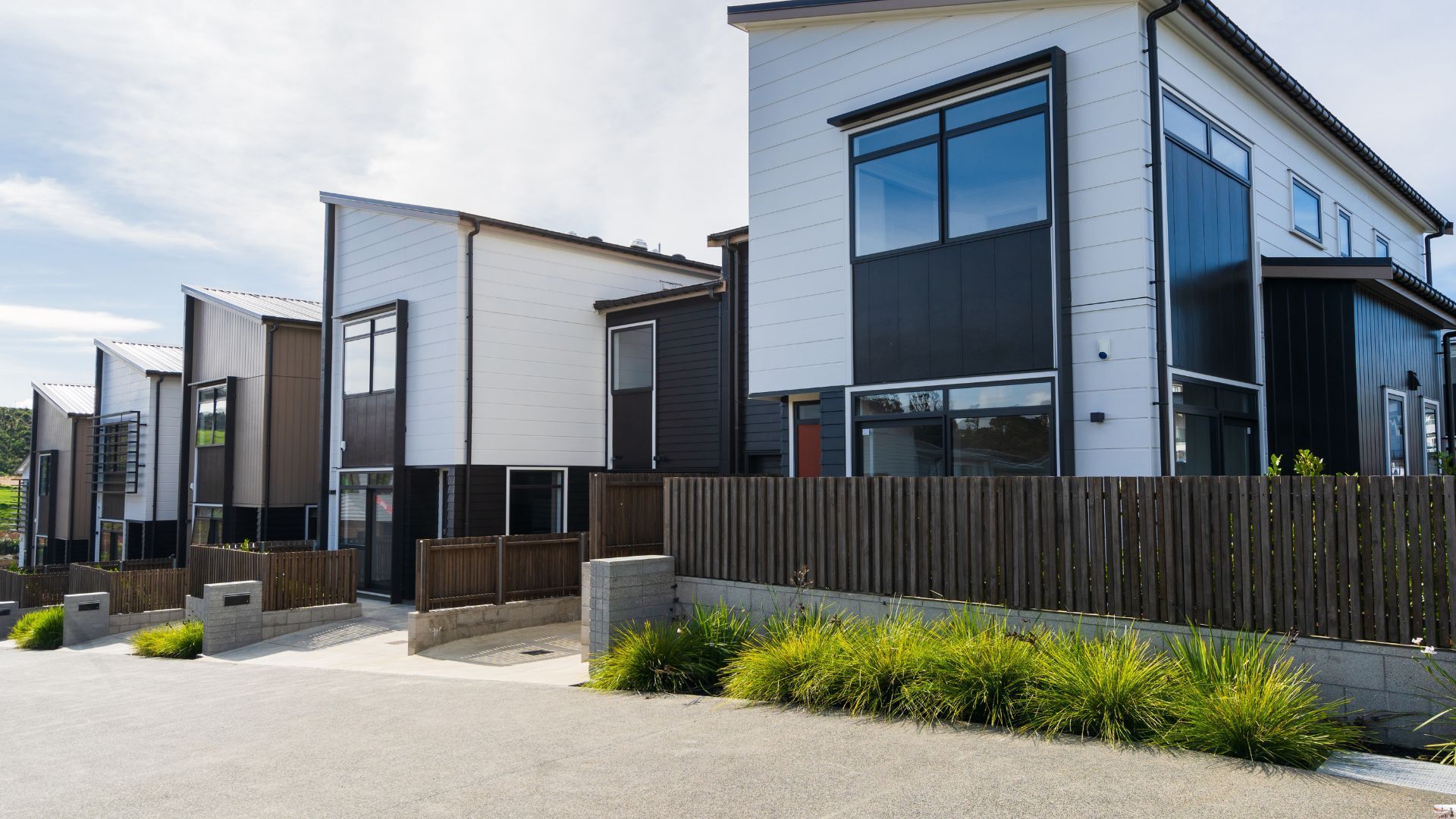What Homeowners and Buyers Need to Know About Multiplex Development
Vancouver’s real estate market is evolving rapidly, with one of the most significant recent developments being the changes to the city’s zoning regulations. The city’s move towards allowing multiplexes on what were once single-family home lots is a response to the ongoing housing affordability crisis and the need to increase housing density in desirable areas. As these changes reshape neighborhoods and affect property values, it’s crucial for homeowners, potential buyers, and real estate investors to understand what this means for them.

In this blog, we’ll explore the new zoning regulations, explain what a multiplex is and how it differs from other housing types, and discuss how these changes impact various stakeholders in Vancouver’s real estate market. Whether you’re a homeowner, a buyer, or a developer, understanding these changes will help you make informed decisions in a competitive market. Let’s dive into what these zoning changes mean for Vancouver’s real estate landscape, particularly for those searching for homes for sale in Vancouver.
Overview of Vancouver’s New Zoning Regulations
Vancouver’s new zoning regulations are designed to address the city’s housing affordability challenges by increasing density in residential neighborhoods. Traditionally, large parts of the city were zoned exclusively for single-family homes, limiting the number of new housing units that could be built. However, recent changes now allow for multiplex development, which permits multiple housing units (typically 3-4 units) on a single lot that was previously designated for just one house.
The shift towards multiplex zoning is seen as a necessary step in combating Vancouver's well-known housing crisis. With the population steadily increasing, the city needs to find ways to accommodate more residents without expanding its geographical boundaries. Multiplexes, which can house several families on a single lot, offer a solution that can provide more housing options in established neighborhoods. For those interested in Vancouver real estate, these changes present new opportunities, but also new challenges that need to be carefully navigated.
The introduction of multiplex zoning isn’t just a response to demand—it’s also part of a larger vision to create more sustainable, walkable, and diverse communities. This policy change encourages urban density, reduces urban sprawl, and promotes the development of housing options within reach of schools, parks, and public transportation. For real estate agents in Vancouver, understanding these zoning changes is key to helping clients find homes that meet their long-term goals, whether they are purchasing as an investment or for personal use.
What is a Multiplex, and How Does It Differ From Other Property Types?
A multiplex is a residential building that contains multiple separate housing units, typically three to four, all within one structure. This is different from single-family homes, which house one family or individual, and duplexes, which contain two units. In contrast to apartments or condominiums, multiplexes offer more privacy and are usually spread over fewer floors. Multiplexes are often designed to blend into existing neighborhoods, making them less disruptive than large apartment buildings.
In Vancouver’s case, multiplexes are seen as a “middle ground” between single-family homes and high-rise apartments. They provide more density than traditional homes but are not as imposing as large developments, allowing for a more subtle increase in housing supply in low-density areas. For buyers searching for homes for sale in Vancouver, multiplexes can be an attractive option. They offer more space than a typical condo and can be a more affordable entry point into homeownership compared to single-family homes, especially in highly sought-after neighborhoods.
Additionally, multiplexes can be more appealing to homeowners and investors alike due to their rental potential. Each unit in a multiplex can be rented out, making it a great source of rental income. The rising demand for rental properties in Vancouver also makes this a financially attractive option for those looking to invest in Vancouver real estate.
The Impact on Homeowners
For homeowners in areas where the new zoning regulations allow for multiplex development, the potential impacts are both positive and challenging. On the one hand, property values in these areas may rise as developers and investors look to purchase lots for redevelopment. The ability to build multiple units on a single lot increases the land’s value, and many homeowners may see this as an opportunity to sell at a premium price.
In addition to higher property values, homeowners may choose to develop their own properties into multiplexes, offering the possibility of significant rental income or even multi-generational living arrangements. For instance, a family could develop their property into a multiplex and rent out additional units while still maintaining their primary residence on-site. This offers flexibility for homeowners, particularly those who are looking to downsize or generate supplemental incom
However, there are potential downsides to consider. Increased density can lead to more congestion, noise, and changes in neighborhood dynamics. Some homeowners may be concerned about the loss of the traditional single-family home character in their neighborhoods. Moreover, as more properties are redeveloped, some residents may experience a rise in property taxes, as well as potential opposition from neighbors who prefer to maintain the status quo. Homeowners should carefully weigh the pros and cons before deciding how to proceed in light of these zoning changes.
What Buyers Should Know Before Purchasing in a Multiplex-Zoned Area
For those looking to purchase homes for sale in Vancouver, the introduction of multiplex zoning offers new possibilities. The increased availability of multiplex units may help alleviate some of the housing supply shortages in the city, providing more affordable options for buyers who might otherwise be priced out of the single-family home market.
When considering a purchase in a multiplex-zoned area, there are a few important factors buyers should keep in mind:
Affordability
Multiplex units are often more affordable than single-family homes, making them an attractive option for first-time buyers. However, buyers should also be aware of potential hidden costs, such as shared maintenance responsibilities or fees associated with managing common areas.
Financing
Securing a mortgage for a multiplex property may differ from traditional home loans, especially if the property is seen as an investment. Buyers may need to provide additional documentation or proof of rental income to qualify for financing.
Long-term Investment
Buying in a multiplex-zoned area may be a smart investment, as demand for multi-unit properties is expected to grow. However, buyers should research the neighborhood and zoning regulations to ensure they are making a sound investment that aligns with their long-term goals.
Ultimately, buyers need to approach multiplex-zoned areas with an understanding of the opportunities and challenges these properties present. Working with a knowledgeable Vancouver real estate agent can help buyers navigate the complexities of these transactions and make informed decisions.
Key Considerations for Developers and Real Estate Investors
The new zoning regulations in Vancouver present exciting opportunities for developers and real estate investors. Multiplexes offer the potential to create higher-density housing in established neighborhoods, meeting the growing demand for homes while providing a lucrative investment option.
For developers, key considerations include:
Land Acquisition
Securing lots in multiplex-zoned areas will be competitive. Developers need to act quickly and strategically to identify properties that offer the most potential for development.
Building Costs
While multiplexes are smaller-scale than large apartment buildings, they still require significant upfront capital for construction, permits, and labor. Developers should factor in these costs when assessing the feasibility of a project.
Community Resistance
Not all neighborhoods are welcoming of increased density, and developers may face resistance from residents who prefer the traditional character of single-family home communities. Engaging with the community and ensuring the design of multiplexes fits seamlessly into the surrounding area will be key to gaining support.
For real estate investors, the rental income potential of multiplexes is a significant draw. Vancouver’s rental market remains strong, and multiplex properties can provide consistent income streams. Investors should evaluate local rental demand and work with property management professionals to ensure their multiplex investments are successful in the long term.
Conclusion
Vancouver’s new zoning regulations mark a significant shift in the city’s approach to housing. By allowing multiplex development in previously single-family home neighborhoods, Vancouver is taking steps to address the housing crisis while also promoting sustainable, higher-density living.
For homeowners, the changes offer opportunities to increase property value or develop their own land into multiplex units. Buyers, on the other hand, can explore new options for more affordable housing, while developers and investors have a fresh opportunity to capitalize on the growing demand for multi-unit properties.
Navigating these zoning changes can be complex, and it’s essential to work with a knowledgeable Vancouver real estate agent who understands the nuances of the market and can provide expert guidance. Whether you’re looking to buy, sell, or invest in homes for sale in Vancouver, understanding these zoning regulations will help you make the best decision for your future in this vibrant and evolving city.
Ready to work with Dirks Real Estate?
Let's connect! We’re here to help.
Send us a message and we’ll be in touch.
Or give us a call today at 778-997-1890











